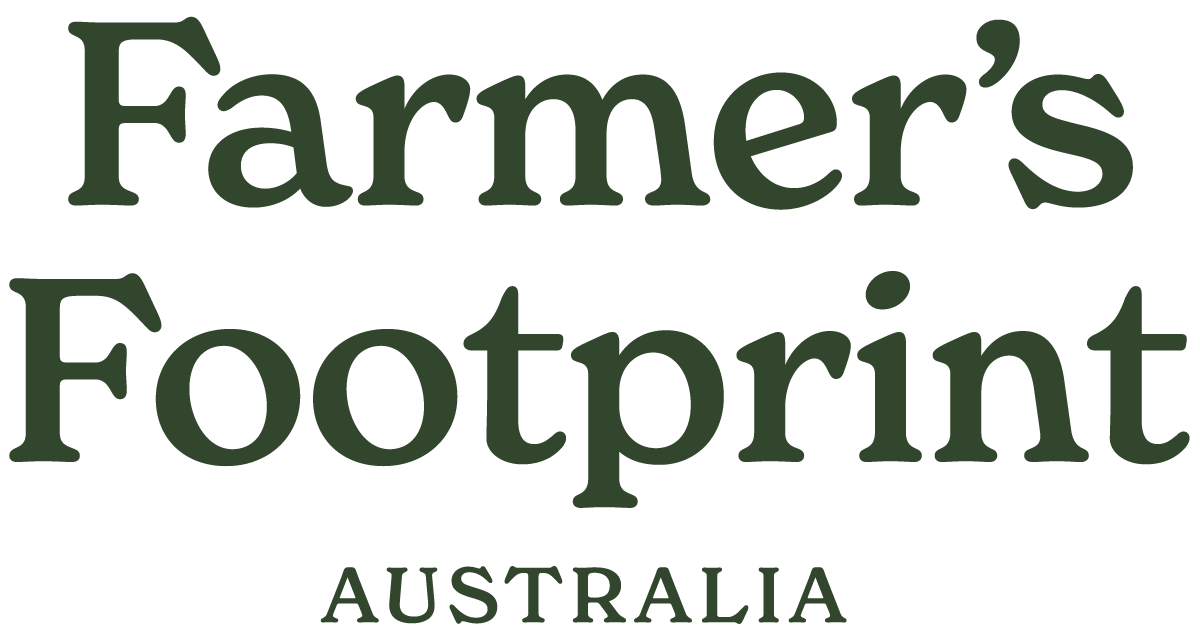Farm Yarns
Chris Hall from Hall Family Orchards
Building Biodiversity for Healthy, Nutritious Food
How Hall Family Orchards came into being
Chris is a third-generation sheep and cherry farmer from Wombat NSW, where he was raised on a traditional 200 hectare cherry orchard managed by his uncle, father and grandfather.
Returning to the family farm after his studies, Chris was full of ideas on how they could do things differently. When his ideas were met with resistance, he went out on a limb and purchased a run-down cherry orchard adjoining his family’s property so that he could begin to farm in a way he knew would improve the health of the soil and environment.
No longer shackled by the practice of ‘conventional’ production, Chris began to experiment with the practices of regenerative agriculture. Seeing the new methods gradually improve the soil health and biodiversity, Chris decided to leave the family farm and focus exclusively on the results he was seeing as a product of his new adoptions.
The outcomes were noticeable to those outside of his operation too, earning him the 2019 National Carbon Cocky Award for demonstrated improvement in carbon capture in horticultural and viticulture production and a nomination as 2019 NSW Farmer of the Year.
Since 2018, Chris has been entirely chemical free. He attributes his secure share of the international market, producing high quality export products, to his transition from a traditional to a regenerative approach to managing his operation. The stewardship of his property in Wombat is one of several projects that Chris is involved in across Australia, setting an example of what it means to be involved in Australia’s regenerative food story.
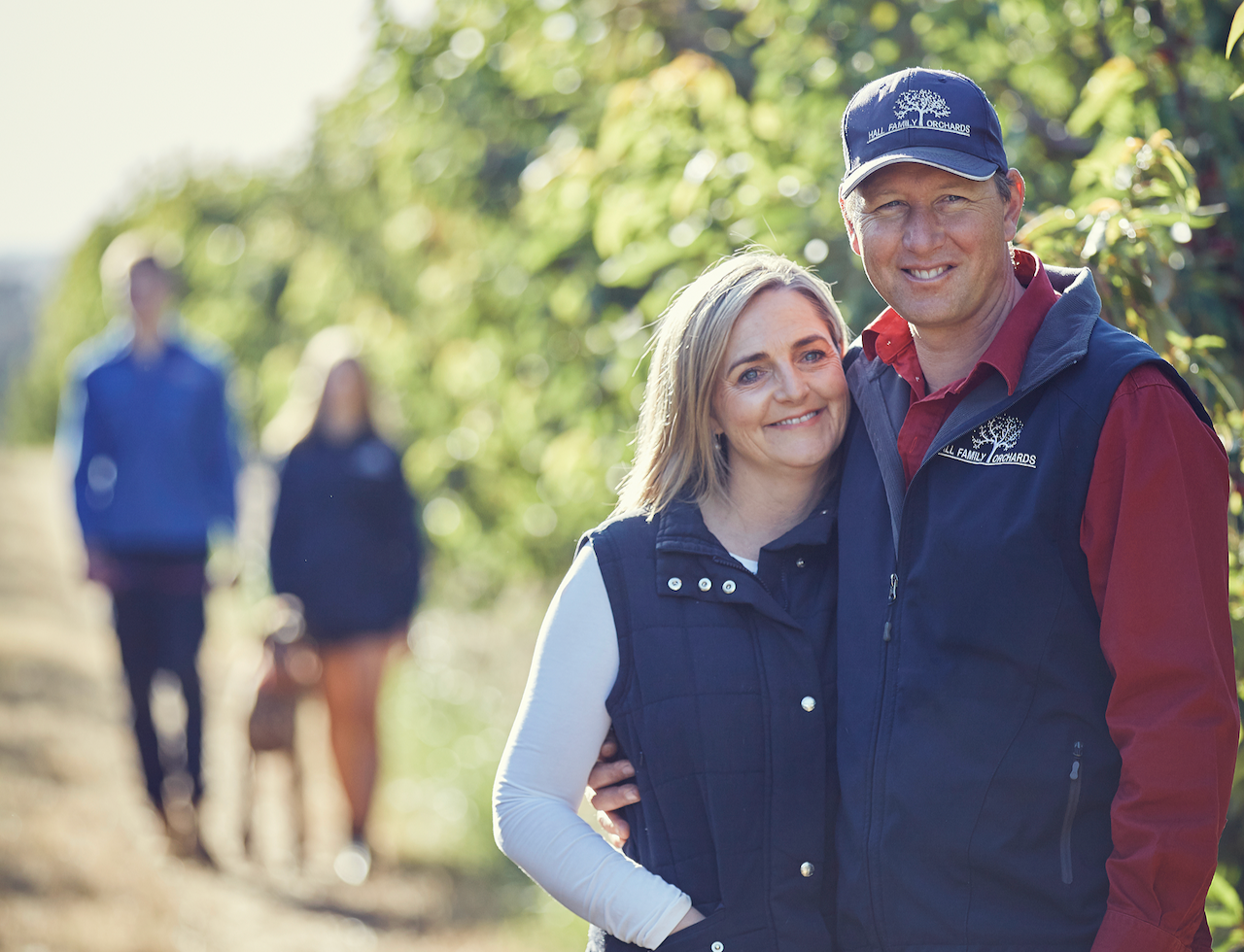

I was keen to implement new ideas to assist with drought proofing for the future and wanting to grow cherries that had amazing flavour. Unfortunately my ideas were not being valued and I was being forced to farm conventionally using pesticides and herbicides. I knew this was not good for the soil health, my health or the health of the consumer at the end of the day.
– Chris Hall
Working with mother nature instead of against her
What was the catalyst behind your decision to look to a different path for cherry production with a focus on soil biology and whole systems?
After completing Year 12 in 1993 I went straight to the University of Western Sydney to complete a degree in horticultural science. It was there I was exposed to alternative ways of farming and the ability to research and problem solve.
When I returned home to the family farm, I had the confidence to advocate for and experiment with my ideas even though the focus between my uncle, father and grandfather had always been a very conventional approach. I was keen to implement new ways to assist with drought-proofing for the future and wanting to grow cherries that had amazing flavour. Unfortunately my ideas were not valued at the time and I was being made to farm conventionally using pesticides and herbicides. I knew this was not good for soil health, my health or the health of the consumer. I also knew that home-grown fruit and vegetables tasted 100% better than those purchased in the supermarket. Although I was continuing to grow cherries that were premium export quality, I was still not satisfied that I was increasing organic matter to the extent that I was expecting from soil test results.
I started to question if my microbes were performing to the best of their ability and what some of the possible barriers may have been. I suspected that the herbicides, fungicides and insecticides were restricting the microbe’s ability to provide nutrients to the trees and help build organic matter in the soil.
I have been on a journey over the past 13 years of investigating ways to reduce chemicals. Firstly, I got rid of pre-emergent herbicides, noticing an immediate improvement in earthworm numbers. I then reduced the use of herbicides such as Round-Up (with the active ingredient Glyphosate) as they were also preventing the earthworms from thriving. I then applied a microbial based product to aid in the breakdown of existing chemicals in the soil. I have now been Round-Up free for over 4 years.
I also moved to an integrated pest management system to help limit chemical use. This system drastically improved the quantity of beneficial insects in the orchard helping to control pests by adding insect diversity into the ecosystem. At this point I suspect the eucalypts and shrubs planted over 20 years ago are now helping with insect diversity also.
Through researching the control of pests and diseases, I now have an exceptional understanding of the nutrients I need to monitor and the concentration levels I need to maintain in order to control pests. I have been pesticide free for over 4 years. At the end of the day, I decided to work with mother nature instead of against her.

Investing in learning
What challenges did you encounter on the land and from a cultural standpoint when you decided to shift your production methodologies?
When I returned home to the family farm after completing my degree in horticultural science, I was keen to try new methods of growing cherries, even within the very conventional framework of how my uncle, father and grandfather did things. Unfortunately my ideas were not being acknowledged and I found myself in a position with no choice but to continue using pesticides and herbicides.
That’s when I purchased the adjoining property with my wife that had a run down cherry orchard on it. The trees had been planted 60 years ago by my great uncle. Starting a new system from scratch has been slow and it took a considerable amount of time to overcome high salinity levels and chemical residues in the soil. It’s taken a significant amount of confidence and investment in learning, listening to podcasts and reading research articles to change or ‘flip’ the approach from the norm.
Cherry growers make money selling cherries by size and yield, however it can be at the cost of flavour and nutrient density. My focus has been on nutrient density, resulting in flavour, followed by size. While this may not have maximised my income in the short term, I am now seeing the financial benefits, My yields have increased and I have significantly reduced the input costs each year compared to conventional farming.
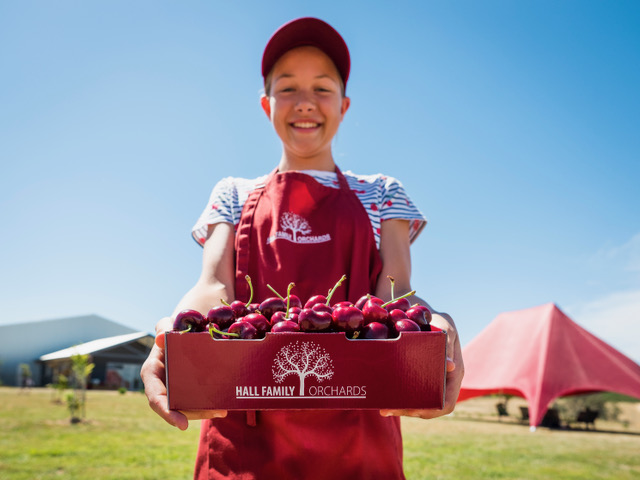

To change or flip the approach, has involved a significant amount of confidence and investment in learning, listening to podcasts and reading research articles.
– Chris Hall
Determination in the face of doubt
Were there any unexpected opportunities or challenges that arose from this shift in thinking, either personally or within the landscape you steward?
I left the family farm due to a clash in personal and farming values, and many expected me to fail. They were not shy about telling me either to my face or behind my back that I was making the wrong decision and like with most industries it’s small enough that comments get back to you one way or another. Ultimately, it came down to a lack of understanding of how or why I was doing what I was doing.
Little by little though, others (outside of the cherry industry) started to notice what I was quietly achieving and gave me the support and encouragement to continue with my vision. I adopted regenerative agricultural practices on the whole farm and successfully implemented these principles to create an export-quality cherry orchard.
I was nominated in 2019 for a National Carbon Cocky Award by Rhonda Daly (YLAD Living Soils). I was awarded the 2019 National Carbon Cocky Award for Demonstrated Improvement In Carbon Management in Horticulture or Viticulture by the Carbon Farmers of Australia. The awards recognise farmers who have shown excellence, creativity and leadership in Carbon Farming. I was also a finalist for the National Carbon Cocky Award for Outstanding Performance in Soil Carbon Sequestration.
At the end of 2019, I won NSW Farmer of the Year. I am a deep thinker and not comfortable being the centre of attention in a group, however as a result of these awards, I have greater confidence in my views and knowledge and have a louder voice within the horticultural industry on the adoption of regenerative approaches.
Learning to manage a new system without chemicals has certainly had its moments. Initially my yields were down, I lost sleep and often doubted myself, however my determination to overcome the challenges allowed me to develop a ‘whole ecosystem’ approach, from the birds and the insects to the microbes in the soil.
The last cherry season (2022) saw good pollination in poor conditions even though the bees were not able to get out and about. Other beneficial insects came to the rescue, and we had a reasonable crop when other conventional growers struggled.
Straightening out priorities
How does your adoption of regenerative practices allow you an advantage when taking your product to market? And how is the market trending in terms of supply and demand for regeneratively grown fruit?
In the cherry industry it is all about size. Most consumers just want the big cherries even if they have no taste or are even bitter. However, the demand at our farmgate shop has been where the value of our product has reached its full potential. We get to meet our customers directly, receive feedback and they return each year and spread the word.
We have customers that would previously buy fruit from other growers or stop via each roadside stall looking for the best cherries. Now they don’t waste their time and instead come straight to us.
Each year the demand grows. We have customers travel from QLD and all over NSW and ACT to buy our fruit. Our cherries are described as full-of-flavour, very firm and with exceptional shelf-life, with some customers boasting that they’re still great 4 weeks later (if there are any left in the box)
There is not a specific ‘regenerative market’, but our focus is the relationships we have with our customers, exporters and agents and growing a nutrient dense cherry that is ethically grown with no nasty chemicals is our number one goal.
We understand you had some pushback from your family initially. What kind of reactions have you had from your community throughout your transition towards regenerative agricultural practices?
It took some time but I no longer worry what others think, especially in the cherry industry. I am only driven to produce ethically grown, healthy cherries.
There is now strong evidence that there are many (agriculturally approved) chemicals that have an adverse effect on the environment and human health. At the end of the day I would prefer to eat fruit and vegetables that have been grown in healthy soil with no chemicals as opposed to those that have. It is a no brainer.
Yes, maybe people think I’m crazy. However, when I think about it logically all I am trying to do is mimic what Mother Nature does naturally – allowing natural nutrient cycling and carbon cycling through a ‘whole ecosystem’ approach.
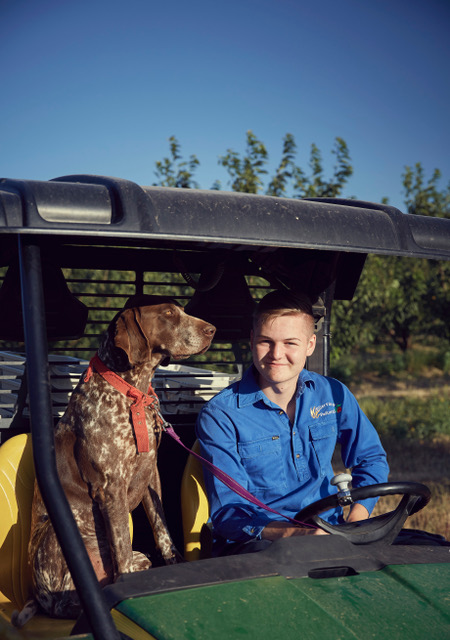
There is not a specific regenerative market, however the relationship we develop with our customers, exporters and agents is what we focus on and growing a nutrient dense cherry that is ethically grown with no nasty chemicals is our goal.
– Chris Hall
Lifelong learning
What advice can you offer other orchardists who are inspired by this systematic shift but unsure where to start or feel the risk is too great?
Start transitioning slowly. Do lots of research and ask lots of questions. Most importantly, be very observant of the whole ecosystem. Never stop learning or experimenting with innovative ideas. Each year I invest in courses to extend my knowledge, read the latest research articles and continue to experiment. It is important to invest in your professional development and surround yourself with forward thinkers.
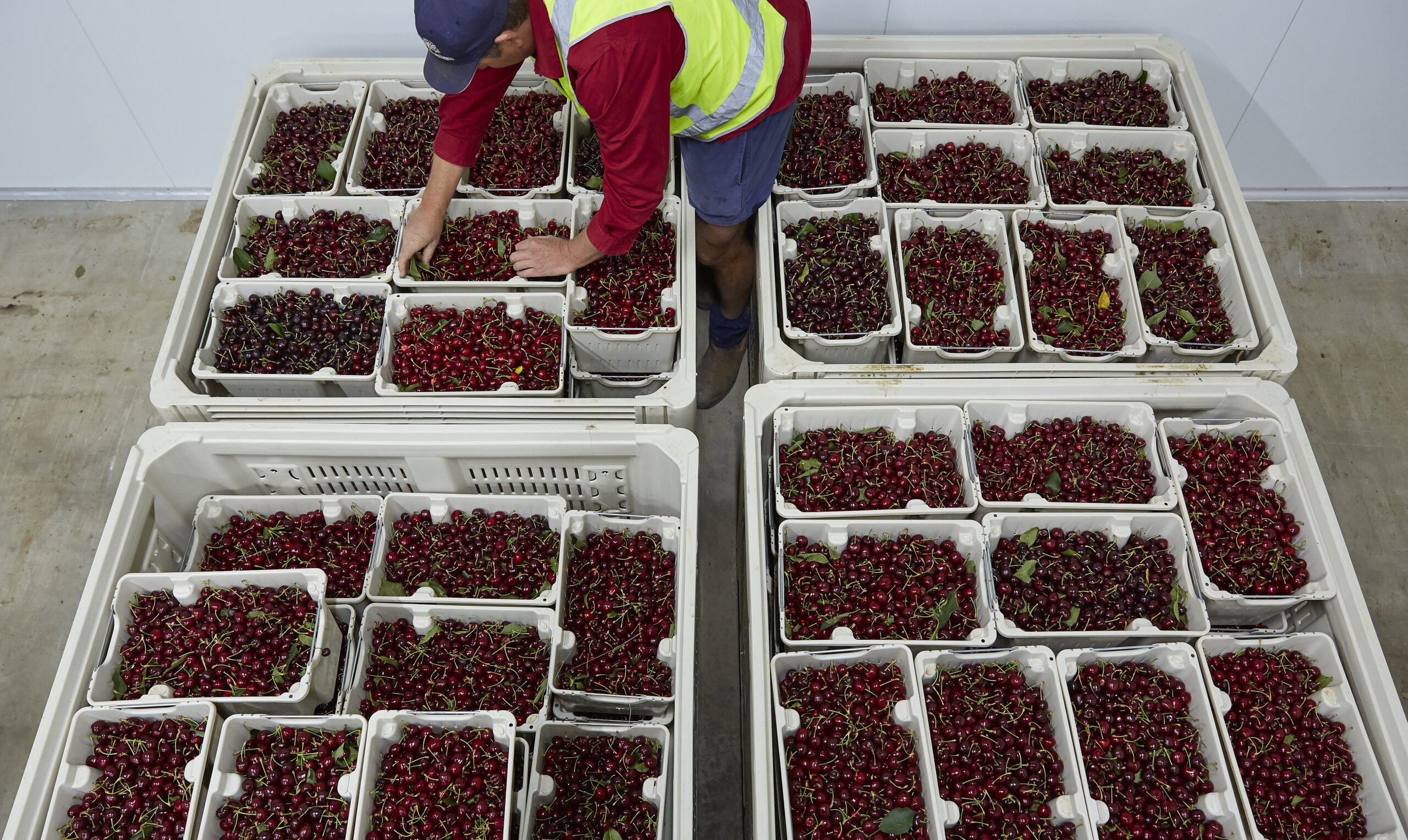
Support empowered storytelling
Your support helps us accelerate the transition to a regenerative farming future.
Follow on Instagram
See what’s going on at
Hall Family Orchards.
